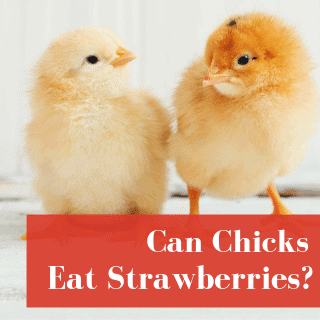From the day your chicks hatch, they will need a good chicken waterer to help them have 24 hour access to water.
You don’t want them getting dehydrated!
There’s lots of options, which are all equally good. Whichever you decide, you’ve got to pay attention to the amount of water and the size of the waters as your chicks grow older.
I’ll introduce the best options out there(at least I think they’re the best options), but towards the end, I’ve even thrown in another option for your consideration.
In this article, we’ll answer the commonly-asked question: “What is the best waterer for my baby chicks?”
(For a full review of several waterers out there, you can read this article.)
Table of Contents (Quickly Jump To Information)
Mason Jar Waterers
Mason jar waterers are good when you have itty bitty chicks that are day-olds. I like these because they’re shallow, and with anything deeper, your chicks might fall in the water.
Earlier this year, we actually did have somebody fall in the water (even though we use mason jar waterers). It was quite the tempest in a teapot with that chick, and although it was unharmed, it was very upset. We actually had to blow it dry to make sure that it was warm enough.
The problem with the Mason jar waterers is that your chicks will outgrow them pretty quick. But they’re cheap and easy to find at your local farm store, and they’re what I recommend using the first couple weeks of your chick’s life.
Bell Waterers
You will see bell waterers for sale at farm stores. I call them bell waterers. I’m not sure what everyone else calls them, but that’s what I call them because they’re kind of shaped like a bell.
You can use those with day-olds, but are really good all the way up to 16 weeks, which gives them a bit more of a lifespan.
The problem with bell waterers with the day-olds is how deep they are. They’re about an inch and a half deep.
It’s important to remember that when your chicks just come out of the incubator, they can’t walk very well. So, they can fall into it.
The other nice thing about these waterers is its handle. You can hang them, and your chicks won’t kick shavings in their water. (The only time they’re not going to get shavings in their waterers and feeders is if you use something like newspaper, which isn’t the best bedding out there.)
You will want to use a bell waterer if you have a lot of chicks. If you have 30 chicks, for example, the little mason jar waterer probably isn’t going to cut it after a couple of days.
It’s just going to be not enough water and not everybody can get to it. In that case, the bigger bell waterer is better.
Kitchen Pan
Sometimes, I have more chicks than waterers, so I need to find a pinch hitter. I’ve found ceramic kitchen pans and baking dishes to be good options. They’re also free and you won’t need to buy extra equipment.
I prefer a ceramic baking dish that’s no more than 1 inch deep. That’s shallow enough that the chicks can’t fall into it, and they can easily access the water (this works great with ducklings, too).
If they DO fall into it, they can easily get out. Additionally, they can’t tip it over, since the baking dishes are relatively heavy.
If we want to use a water from the kitchen, just like a bowl, that’s what we use because it’s just simpler.
Keeping Chicks From Falling Into Waterers
Yes, chicks can drown, especially if they’re weaker or they’re getting trampled. But you can easily prevent your chicks from falling into their waterer by putting a bunch of rocks in there.
Many farm stores use rocks they found outside, but I think it’s best to use smooth river stones that you can buy at the store. Your chicks can still get to the water, but they won’t try to climb in, and if they fall in, they won’t fall very far.
You can remove the stones after a few days.
So how many stones? Well, it depends on how deep your waterer is.
A single layer of stones is usually enough, especially with mason jar waterers. I’ve just found that with the mason jar waterers, you don’t really have to put in as many stones.
Personally, with the mason jar waterers, I don’t use rocks, and I’ve never had a chick drown in one of those smaller waterers.
In some cases, it can actually prevent them from drinking, and I want my day-olds to be able to get to the water all the time. But with the bell waterers, you can do that.
So there you have it! There’s 3 different waterers for chicks that’ll keep your new flock hydrated and happy!
Maat van Uitert is a backyard chicken and sustainable living expert. She is also the author of Chickens: Naturally Raising A Sustainable Flock, which was a best seller in it’s Amazon category. Maat has been featured on NBC, CBS, AOL Finance, Community Chickens, the Huffington Post, Chickens magazine, Backyard Poultry, and Countryside Magazine. She lives on her farm in Southeast Missouri with her husband, two children, and about a million chickens and ducks. You can follow Maat on Facebook here and Instagram here.

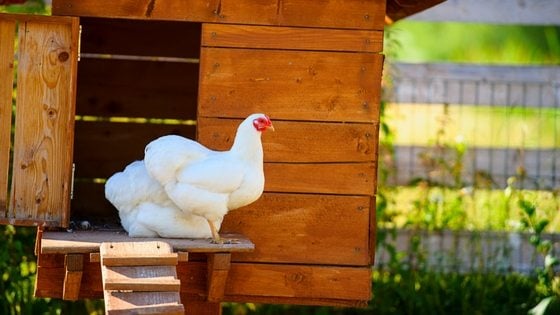
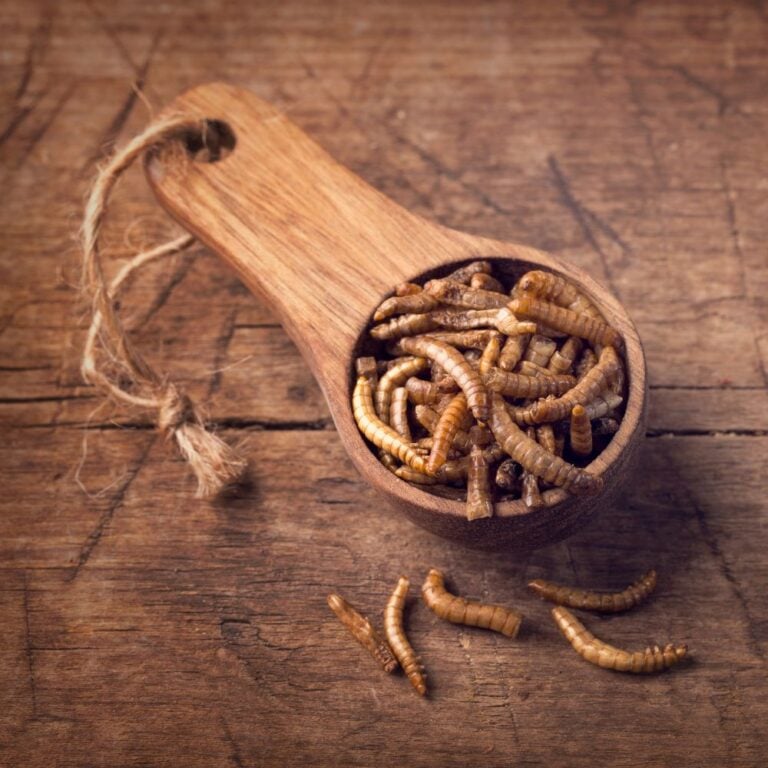
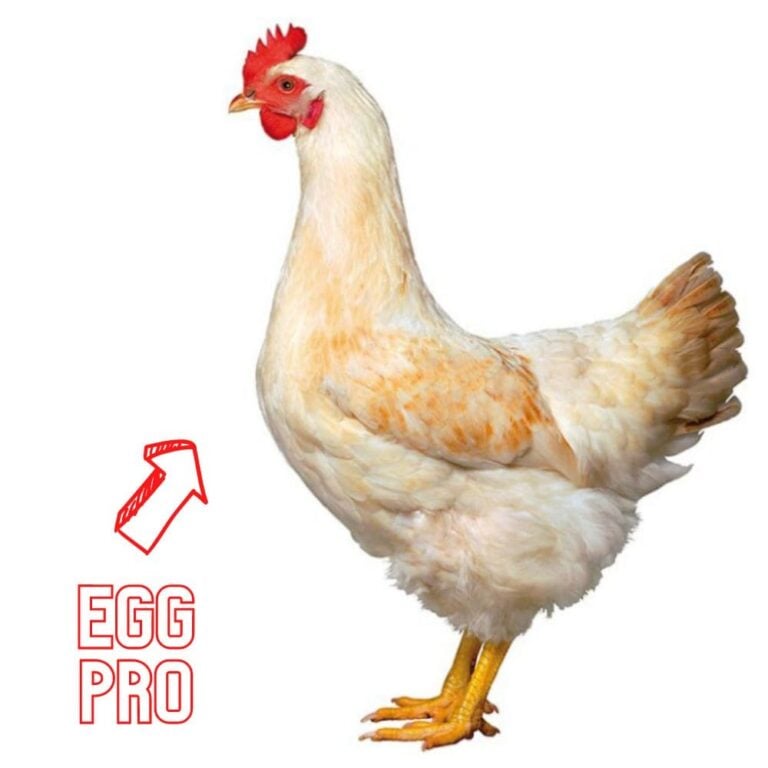
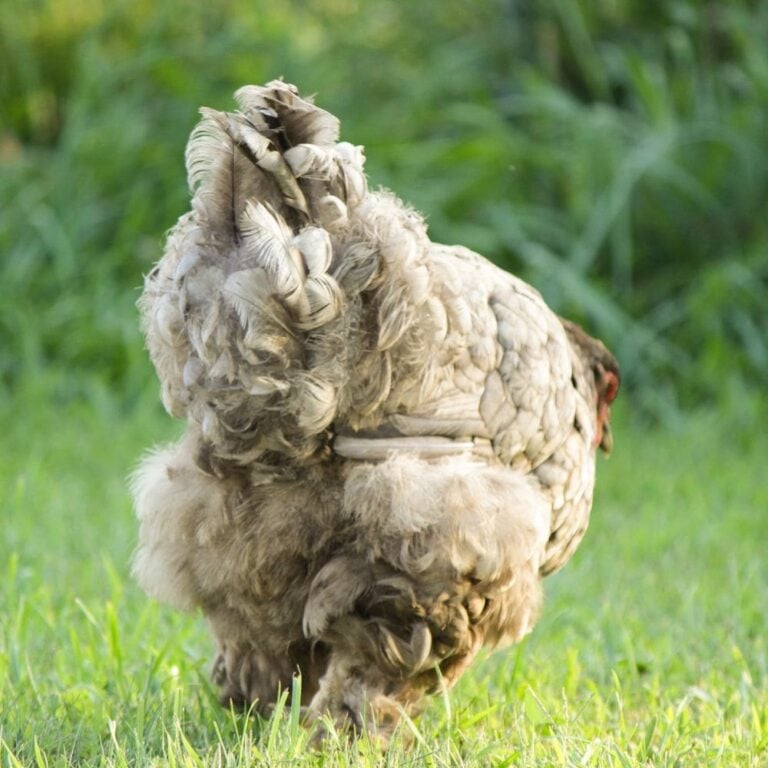
![Keep Chickens Safe From Predators Using 10 Expert Tips [Podcast]](https://thefrugalchicken.com/wp-content/uploads/2016/06/keep-chickens-safe-from-predators-min.jpg)
